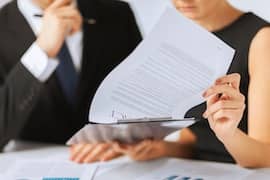Spotlight on FRE 702: When Damages Experts Go Astray

Amendments to Rule 702 of the Federal Rules of Evidence took effect on December 1, 2023. The changes raise the bar on the admissibility of expert testimony. This article provides an overview of one of the first rulings on a Rule 702 challenge under the amended guidance.
Bextermueller News Distributors, Inc., et al. v. Lee Enterprises, Inc., et al, Case No. 4:22-CV-00344-SPM, U.S. District Court for the Eastern District of Missouri (December 28, 2023).
Case facts
The plaintiffs were newspaper carriers who had contracted with the defendants to deliver papers to subscribers in specified territories. The contracts gave the plaintiffs exclusive home delivery rights within their territories and provided that the defendants won’t “terminate such territorial rights or aid, abet or assist in the creation of other home delivery systems” within those territories.
The defendants began offering an electronic version of the newspaper in 2017. The plaintiffs sued the defendants in 2022. They alleged that the electronic delivery system breached their contracts and damaged the property interests in their routes and their relationships with their customers.
Estimated damages
To calculate lost revenues, the plaintiffs’ damages expert multiplied the total digital-only subscribers in their territories for the period leading up to trial by the fee they were entitled to receive for each newspaper they delivered. The expert prepared similar estimates for future revenues over the following 15 years and discounted those amounts to present value.
The defendants challenged the expert’s testimony as irrelevant and unreliable. They argued that the damage calculations were based on an erroneous premise: The expert assumed the plaintiffs were entitled to recover delivery fees for every digital subscriber in their territories, even though there was no evidence that every digital subscriber would otherwise have been a print subscriber. The plaintiffs countered that their agreements required the defendants to pay them a fee for every delivery made in their territories, regardless of who made them or how they were made.
Rule 702 challenge
The U.S. District Court for the Eastern District of Missouri agreed with the defendants. For one thing, the contracts clearly stated that the defendants were obligated to pay a fee for each newspaper delivered “by the carrier.” Because the expert’s calculations were based on the faulty premise that the plaintiffs were entitled to a fee for each digital delivery, her opinion was “so fundamentally unsupported that it can offer no assistance to the jury.”
The court explained that the alleged breach in this case was the defendants’ creation of an alternate delivery system. While plaintiffs were entitled to recover their lost profits — profits they would have realized but for the breach — the expert’s calculations weren’t consistent with this measure of damages. For example, she made no attempt to determine how many digital subscribers represented revenue the plaintiffs would have earned had the breach not occurred. The court observed it was quite possible that some digital-only subscribers would never have been print subscribers even without a digital option.
The plaintiffs had access to a “trove” of financial data, and their expert could have used that data to compare their financial performance before and after the alleged breach. However, the expert simply included all the digital-only subscribers in her lost-revenue calculations. This approach, the court concluded, wasn’t consistent with the types of recoverable damages for breach of contract.
Key takeaway: Vet experts carefully
Today, courts no longer give expert witnesses the benefit of the doubt and allow the jury to evaluate the relevance and reliability of their testimony. So, it’s critical to ensure that your experts meet the admissibility standards set forth under the recently updated guidance.
Bonus Content-Evolution of Rule 702
Federal Rules of Evidence (FRE) Rule 702 governs the admissibility of expert testimony. Originally, the rule allowed qualified experts to testify so long as their “scientific, technical, or otherwise specialized knowledge” would have helped the trier of fact understand the evidence or determine case facts.
In 2000, Rule 702 was amended to reflect the U.S. Supreme Court’s decision in Daubert and the cases that followed it. The Court designated federal trial judges as the “gatekeepers” of expert evidence. The amended rule set forth standards regarding experts’ methodology and the factual bases of their conclusions. The amendments were designed to prevent irrelevant or unreliable evidence from being admitted. Nevertheless, some courts interpreted these standards as going to the weight of expert testimony rather than its admissibility.
To ensure that federal trial judges perform their gatekeeping function, the Supreme Court approved additional amendments to FRE 702, which took effect December 1, 2023. The amendments require a proponent of expert testimony to demonstrate by a preponderance of the evidence that an expert’s testimony will assist the jury, is based on sufficient facts or data, is the product of reliable principles and methods, and reflects a reliable application of those principles and methods to the facts of the case. These changes clarify that whether expert testimony meets these standards is a question of admissibility for the court.
Contact our team today if you have questions about Amendments to Rule 702.










